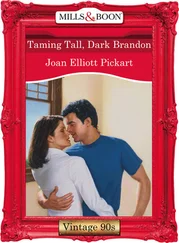Toby’s opponent this night was a wiry kid with bitten fingernails. The kid had a small radio on which he played manic-sounding music at low volume, and also a journal, which he flipped open from time to time and jotted things in. Toby’s opponent won the coin flip, then, inexplicably, perhaps to show how confident he was, chose to vault first. Toby stood by and watched as the kid faulted on his first vault. The kid turned off his radio and blew into his hands. His second vault, he faulted again. His third attempt, no chance. His steps were all wrong. The kid flopped down roughly in the grass and threw back the cover of his journal. All Toby had to do was clear the minimum height and he’d win. He was going to win. He glanced up at Shelby and she stood and let out a cheer.
At home, Toby took out his mother’s mirror. He breathed on the mirror and buffed it with his T-shirt. He’d had a new thought, and he had to shine a light on this thought. The thought was this: He could leave Kaley in the bunker and quit taking care of her, quit feeding her, let her bones be found in ten years like that girl near Buccaneer Bay. This was the thought. There it was. This was an easy way out. It would set him back to nothing, set him free. He’d have a clean record then, like he’d told the guidance counselor. He could go straight to school and straight home like a regular kid. He could worry about his grades, things like that. He could probably sleep. He would sleep if he knew that in the morning he didn’t have to go to the bunker. He hated the bunker. It was his to find and wasn’t it his to give up? It was Kaley’s now. If Toby left her to go permanently quiet down there, then he could do whatever he wanted in the afternoons, whatever he wanted with his weekends. He could let Shelby have him. Kaley would fade. Toby would forget her, almost. Kaley would be another mistake, like the rest. People made mistakes all the time. Toby could welcome the days instead of bracing for them. He’d never welcomed days before, Kaley or not, but he’d never had a reason to. He’d never had Shelby.
Toby pressed his hand against the mirror’s glass, leaving a print. He couldn’t look at his face. His face was full of guilt and weakness, and abandoning Kaley would require more strength than taking her had, more strength than keeping her. Toby was unworthy. He had to get control of his mind. He was being a crybaby because his evil wasn’t spoon-feeding him instructions every two minutes. He had to listen harder. He had to feel his instincts. He couldn’t, though. All he could feel was what the future might be like.
Shelby took an elevator and found the passport office. She’d been to the drug store for her photo and she’d dug out her birth certificate. All she had left was the paperwork. She wasn’t sure if she was going to have to forge her father’s signature. She was prepared to. He wouldn’t have minded her getting a passport, but Shelby didn’t want to tell him why she needed one. She didn’t want to tell anyone anything until she’d actually been invited. Aunt Dale had sent Shelby e-mails complaining about that guy she’d never married, and complaining about traveling and about people she had to work with, the kind of complaining one did to a friend, to a confidant. It was a relief to Shelby, hearing about someone else’s problems instead of being asked about her own. At this point, it took Shelby longer to reply than it did Aunt Dale, because Shelby couldn’t always get to a computer. Shelby was a little surprised that her aunt hadn’t suggested they talk on the phone, but for someone like Aunt Dale phones were dusty old history. Phones were for regular, slow people.
There was one lady working in the passport office, no other customers. The lady had high-waisted pants and a big wooden hair clip. Shelby told her what she needed and the lady began compiling forms.
“Shouldn’t you be in school?” the lady said.
“Yes, I should.” Shelby put her elbows on the counter. “But you guys aren’t open on weekends.”
“So you’re running some errands today?” The lady was good-natured. She used a blunt, manicured fingernail to flip through the forms.
“I love errands,” Shelby said.
“Where’s your accent from, sweetie?”
“I don’t have an accent,” said Shelby. “I pronounce the words correctly. You have an accent.”
“Everybody has an accent.”
“That’s what people with accents think.”
For the wing meeting he was hosting, Mr. Hibma brought in strawberries from Plant City along with a jug of Romanoff sauce he’d cooked up. He brought a twelve-pack of cream soda and some tamales a woman outside his villa complex was always selling.
Besides Mr. Hibma and Mrs. Conner, there were nine teachers in the East Liberal Arts Wing. Of those nine, seven blended together — dumpy but not disheveled, out of shape but not fat. The other two were young. One was Pete, a guy who taught advanced English and on weekends played in a punk band. Mr. Hibma had been inside Pete’s classroom only once, back when Mr. Hibma had first come to Citrus Middle. Pete had shown Mr. Hibma all his Sex Pistols and Ramones posters. He’d confided to Mr. Hibma that all the old teachers were against him, and seemed to think he and Mr. Hibma were going to be friends. He’d kept asking Mr. Hibma to come see his band play for months on end, before finally giving up. Now their interaction consisted of nods in the hallway and the occasional strained chat.
The other twenty-six-year-old was a round-faced girl who held advanced degrees in Spanish. She drove down to USF several evenings a week. She was a master of Latin linguistic study, but couldn’t leave Citrus County because her husband ran a river rock company that serviced the entire Nature Coast. And she apparently had no problem with this. She had no problem with working at Citrus Middle rather than at the UN or an embassy in Madrid.
Mr. Hibma waited by the door as his guests arrived, offering greetings and indicating the refreshments he’d put out. Pete ate a tamale. Nobody touched the strawberries. Mrs. Conner patted Mr. Hibma on the shoulder and he gave her his most congenial smile. She set up shop at the front of the room and everyone else settled into the students’ desks. The social science teacher, a woman with an expansive forehead who wore a Spider Pride T-shirt every Friday, excused herself and returned with a Snickers. She explained that her diet allowed her one serving of candy per week, and this was when she was choosing to have it.
The meeting began with an update on the progress of a new remedial program, updates about former students Mrs. Conner remained in touch with. Reports were exchanged about problem students. There were kids who needed drugs and weren’t on them, kids who were on drugs and didn’t need them, kids with overbearing parents, kids whose parents were never around. Mrs. Conner also had two staff petitions for everyone to sign, one backing the idea that students not be able to miss class for sports-related activities, the other backing a ban on the books of Kurt Vonnegut. Not one teacher in the school assigned Kurt Vonnegut. It was a preemptive strike, probably an order passed down from the headquarters of Mrs. Conner’s church.
“I ain’t signing it,” said Pete. “Unless you help me get my shows approved as music extra credit, I’m not helping you do anything. Gathering around a flagpole to pray is extra credit and witnessing the creation of live music ain’t?”
Mr. Hibma had noticed that, for effect, Pete sometimes said the word ain’t .
“Your shows are in bars,” Mrs. Conner said.
“Not all of them. You know that.”
Mrs. Conner’s face was bothered yet composed, like she’d breathed in a sour smell and was waiting for it to blow away in the wind. “You’re comparing prayer to rock music?” she asked Pete.
Читать дальше












